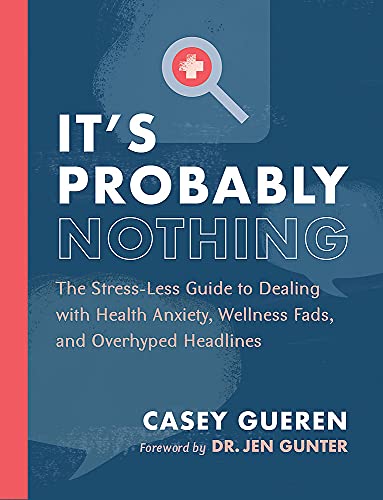Keeping up with the endless avalanche of wellness trends and health advice these days is basically a full-time job. No, really, it’s my full-time job. I’ve been a health writer and editor for the last decade and I’ve had a front-row seat to the explosion of the wellness industry and the ways it’s changed how we care for ourselves on a daily basis.
You’ve probably noticed it, too: Supplements filling up your social feeds, “immune-boosting” hacks on the news, and tons of ads for wellness products that swear they’re safer/gentler/somehow more feminist than what you’ve been using all these years.
Here’s one example of how this shift affected my job as a health editor over the last decade: In 2011, I worked at a magazine that recommended using a toilet seat cover as facial blotting paper in a pinch. The other writers and I heralded it as the perfect wellness tip—it was hacky, it was easy, it was unexpected, it was something that a reader in Kentucky could do just as easily as a reader in LA. We were constantly trying to brainstorm new ideas that lived up to the toilet-seat-cover hack. In 2019, I edited an article about natural alternatives to retinol. Sure, retinol is highly researched and highly effective, and it’s literally vitamin A. But ugh, isn’t there a more natural option?
The wellness scene had changed. We went from not caring what we put in or on our bodies as long as it worked to not wanting to put anything in or on our bodies unless we knew exactly what was in it, if we could pronounce it, and if it was sustainably sourced. I’m not saying this is bad—being an informed consumer is great. But it did seem to result in this halo effect when it comes to the word natural.
We assume that if something is natural it can’t possibly harm us. It can’t come with nasty side effects like antibiotics. It can’t do anything but wonders for our bodies. Right?
Hate to burst your bubble, but there are tons of things that are natural and harmful—in small and big doses. Plenty of “natural” ingredients in skin care can cause serious irritation or allergic reactions. Essential oils may be “natural,” but some can be poisonous if ingested, while others can cause severe chemical burns when mixed with sunlight. Even certain vitamins can
be toxic in large doses. So you can see how easy it would be to overdo it on a bunch of different wellness products, with no regard for how they might interact with each other, and suddenly you’re not feeling so well.
Just because something doesn’t require a prescription doesn’t mean that you shouldn’t be wary of putting it on or in your body. When in doubt, always ask your doctor or pharmacist about any side effects you should keep in mind when using a product—especially if you have any conditions or are taking any other medications or supplements. If you can’t do that, at least do some research on the ingredients themselves, paying particular attention to possible side effects and interactions—and not just drug interactions, but interactions with foods, drinks, and other things you’re putting in or around your body.
Unfortunately, there isn’t really a foolproof plan for knowing if the latest health advice you see online is worth your time, money, and energy, or knowing if something is definitively going to work for you—because bodies are super weird and variable.
That’s where peer-reviewed research and FDA regulation come in. I know the process is not perfect and there are always limitations, but the more rigorous research we do on something, the more confident we can be that we understand how it might impact all sorts of people. This is especially important when we’re talking about treating conditions, because when you’re
chronically ill you often don’t have the time, money, or energy to waste on treatments that haven’t been studied.
That said, just because something hasn’t been extensively studied or FDA-approved doesn’t mean that it can’t work. It just means that it hasn’t been proven to work, nor has it been proven to be safe.
Of course, you don’t need to limit yourself to only partaking in health and wellness things that are rigorously tested and approved. We can just do things because they feel good, because they work for us, because we want to experiment. That’s allowed. To my knowledge, no one is working on the FDA approval of laying on the beach as a proven treatment for anxiety, but it sure as hell helps mine and I’m going to keep doing it.
All I ask is that you see the very crucial difference between things that have been through that rigorous process and things that haven’t. See that it’s irresponsible to make claims or a profit off of something that you swear will make someone healthier, when you don’t have the science to back it up. Realize the hypocrisy of someone who tells you to shun the medical researchers who have dedicated their lives to studying something—and asks you to trust them instead.
Stay mindful and skeptical, especially when it concerns your health.



